There is nothing that can ruin a trip more than pesky mosquito bites. Although idyllic, the one downside to the Land of Smiles are the mosquitoes in Thailand, which are present all year round.
Thailand’s mosquitoes, and across all of Southeast Asia for that matter, are something you want to avoid. Not only do they carry the possibility of diseases, but even the smallest mozzie can leave a nasty itch.
But don’t worry, there are ways you can protect yourself from these annoying flying creatures. In this guide, we’ll share everything you need to know about mosquitoes found in Thailand.
Are Mosquitoes in Thailand Dangerous?
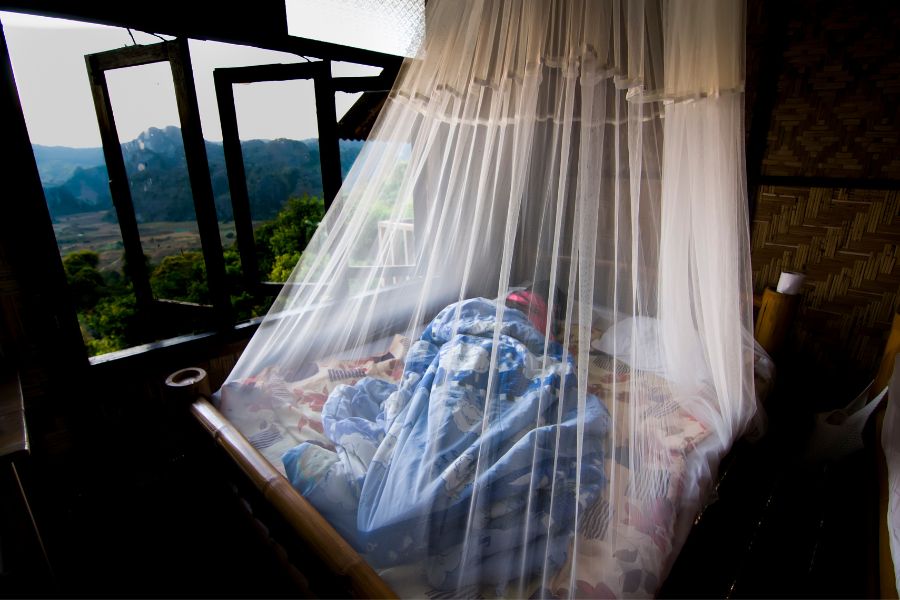
Mosquitoes are prevalent in Thailand and there is no escaping them, however the chances of them being harmful are very small.
Most of the time a mosquito bite leads to nothing but an annoying itch, but unfortunately some mosquitoes do carry harmful diseases and should be considered a dangerous animal in Thailand.
What Diseases Do Mosquitoes Carry?
The likelihood of Thailand’s mosquitoes carrying a disease is very rare, however, some of the potential diseases they carry are Dengue Fever, Japanese Encephalitis, Lymphatic Filariasis, Zika Virus, and in very small numbers on the Thailand border, Malaria.
The most common, though still not common, is Dengue Fever. This is prevelent throughout Southeast Asia and, as the name suggests, gives infected people flu-like symptoms for about a weak.
Those who contract Dengue Fever will have the following symptoms: mild to severe fever which comes in waves, a severe headache, pain behind the eyes, muscle and joint pain, nausea or vomiting, and sometimes a body rash.
Japanese Encephalitis is found in rural areas in Thailand, particularly around pig farms. The virus has the following symptoms: fever, headache, vomiting, and sometimes affects brain functions and the nervous system. Seizures and movement disorders are also common.
This is a serious disease and is known to cause death in 20%-30% of those who contract JE. However, there is a vaccine for it, which is recommended to get if you plan to visit rural parts of Thailand for over one month.
Lymphatic Filariasis is caused when a mosquito carries a parasite, which gets into the lymph nodes. The symptoms of Lymphatic Filariasis include swelling and inflammation, particularly in the genital region.
Zika Virus, which is famous for causing birth defects, is very rarely contracted in Thailand, however 110 cases were recorded in Thailand in 2023. Zika Virus has been found in the Chanthaburi, Phitsanulok, Rayong, Samut Songkhram and Trat provinces.
Zika Virus causes the following symptoms: high fever, headache, rash, red eyes, joint and muscle pain.
The last known mosquito born disease found in Thailand is Malaria, which is sometimes found in rural near the borders with Cambodia, Laos, and Myanmar. Symptoms of Malaria include sweating, body ache, and cycles of high fever with chills.

Should I worry about mosquito bites in Thailand?
The likelihood of you getting bitten by a mosquito carrying a disease is very small, however you shouldn’t let your guard down.
Most people who visit Thailand will come away with a mosquito bite, even if they wear insect repellent, because no treatment is 100% effective at keeping them at bay.
However, statistically, the chances of you catching a disease is very low. The most likely disease to catch, is Dengue Fever. It’s estimated that 1% of travelers in Thailand contract Dengue Fever, and 90% of those people have mild symptoms.
It’s very rare for travelers to catch Dengue Fever because they don’t spend enough time in Thailand to come into contact with an infected mosquito.
While there is a risk associated with traveling to any country with mosquitos present, worrying about mosquito bites is only going to dampen your experience.
What Mosquito Species Are Found in Thailand?
It’s estimated there are at least 117 species of mosquito in Thailand, with the most common species being Aedes, Anopheles, Armigeres, Culex, and Mansonia.
Aedes
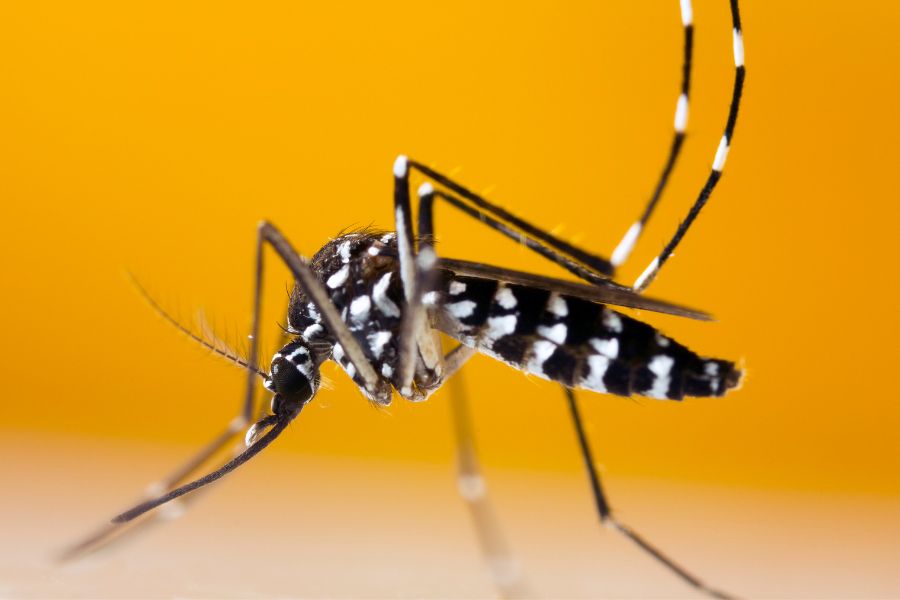
Aedes mosquitoes, including Aedes aegypti and Aedes albopictus, are known vectors for several viruses, such as Dengue Fever, Chikungunya, and Zika Virus in Thailand.
These mosquitoes are common in Thailand, and are known for their distinctive black and white markings on its body and legs.
It prefers to feed on humans and can lay eggs in small containers of water. Aedes albopictus, also known as the Asian tiger mosquito, feeds on multiple hosts and increases the risk of zoonotic disease transmission.
Both species are adapted to urban environments and have a preference for biting during the day.
Anopheles
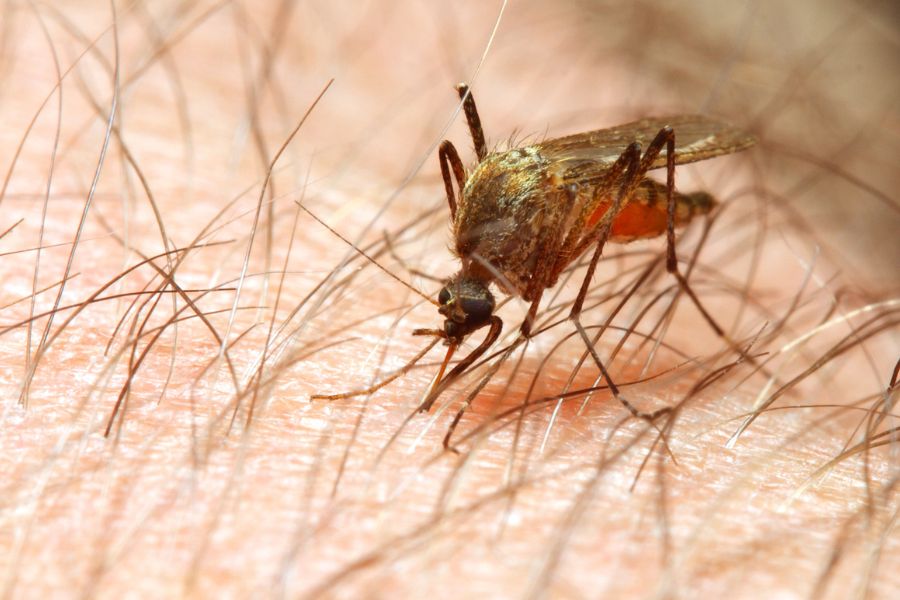
Anopheles mosquitoes, also known as Marsh Mosquitoes, are the primary vectors for Malaria. They have long, slender bodies and wings with dark spots, and their bellies turn red once they have drunk blood from a human.
These mosquitoes bite primarily at night and prefer to breed in clean, stagnant water sources.
Armigeres
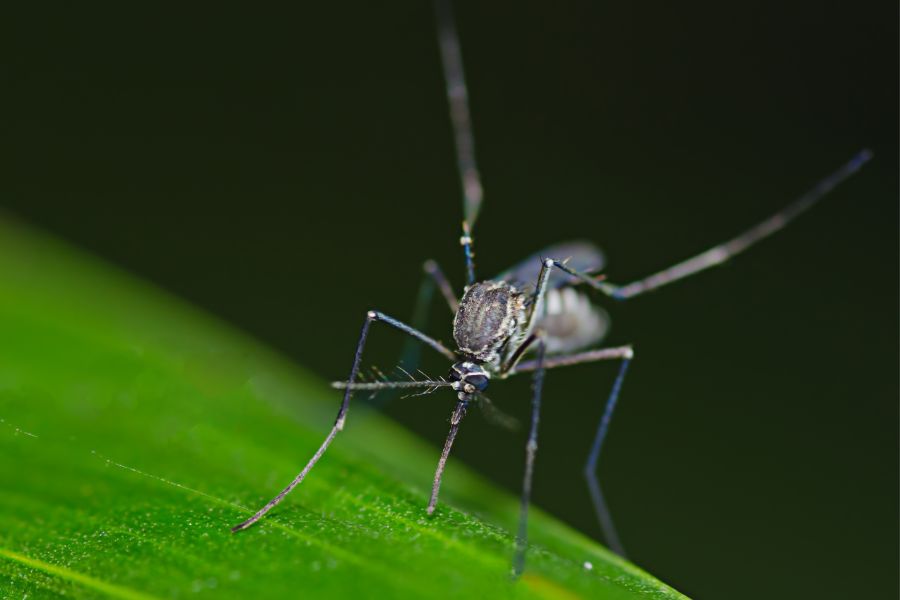
Armigeres mosquitoes are nuisance biters and can sometimes carry Lymphatic Filariasis. They are commonly found in rural areas and prefer to bite during the evening and early morning hours.
Culex
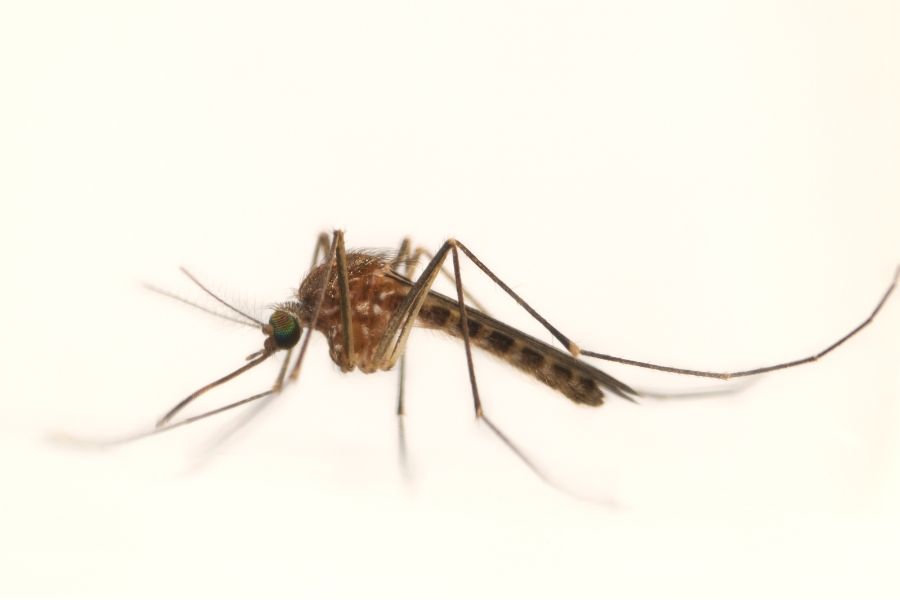
Culex mosquitoes are known vectors for diseases such as Japanese encephalitis. They have brown or gray bodies and feed on both humans and animals.
Culex mosquitoes are most active during the evening and at night.
Mansonia
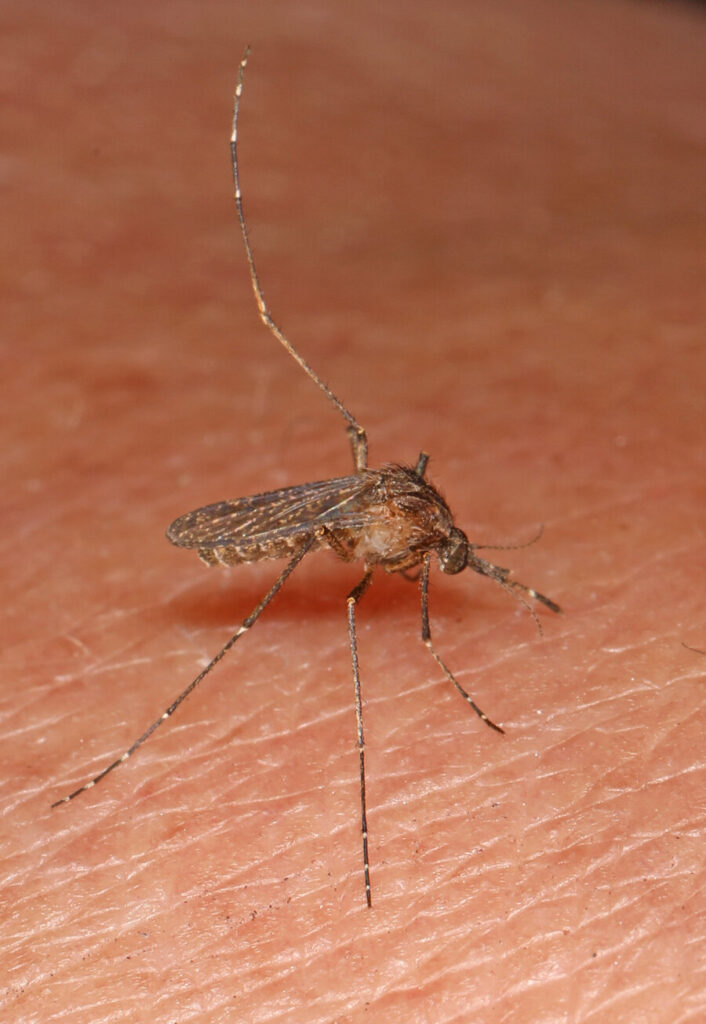
Mansonia mosquitoes are primarily found in tropical regions and can transmit diseases such as filariasis.
They have long, slender bodies and dark-scaled wings. Mansonia mosquitoes typically breed in fresh or brackish water sources.
What is the mosquito season in Thailand?
Mosquitoes are around all year round, so there is no avoiding them. However, they prefer wet and humid climates, and so there are more active in the rainy season (June to October).
Because they are more active during the wet season, there is more risk of contracting diseases during this time.
What month are mosquitoes the worst?
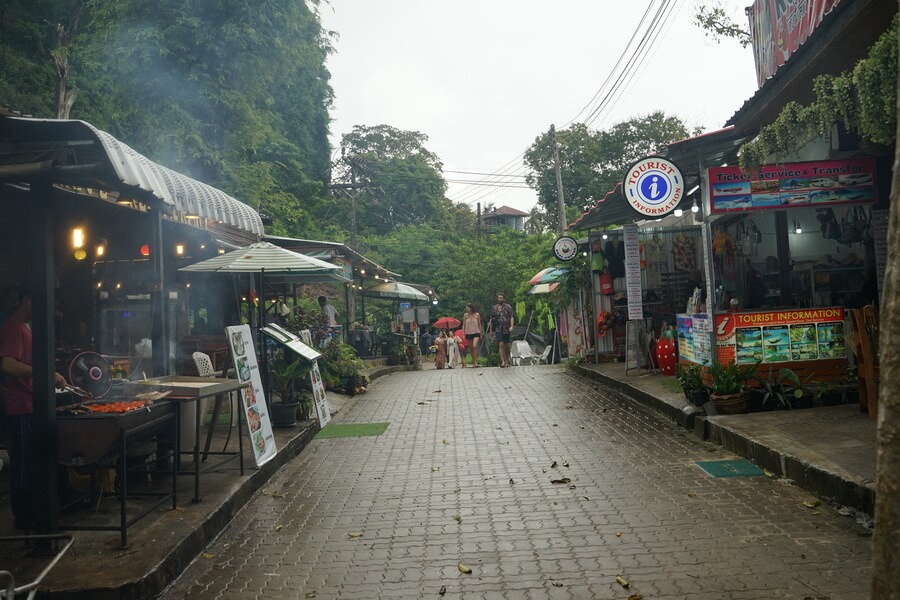
The rainy season in Thailand typically starts in May or June, depending on where you are in Thailand, and ends in October or November.
The worst months for mosquitoes is June to October as this is when the rainfall is at it’s heaviest across Thailand, however you may also find them to be a nuisance during May and November when there is still a fair few rainy days.
How do I stop getting bitten in Thailand?
There is no 100% way of safeguarding yourself against mosquito bites, but there are steps you can take to lower the risk of getting bitten:
- Wear DEET insect repellent. DEET works by creating an odur that confuses the mosquitoes receptors and deters them from landing on your skin. It’s the most effective form of insect repellent and lasts between 6-8 hours.
- Cover your skin. Wear long trousers and long-sleeve t-shirts to minimise the risk of mosquitoes landing on your skin.
- Avoid going out at dusk and dawn. During the day, mosquitoes are most active during dusk and dawn, so avoid going outside during those hours of the day.
- Have the A/C on in your room. Mosquitoes don’t like the cold, and cold temperatures slow them down and make them lethargic. It may not stop them biting you, but it will help to reduce the chance.
- Wear trainers with socks. In the hot weather, flip flops and sandals may feel like a good idea, but mosquitos like to hover around puddles and can land on your feet.
- Sleep under a mosquito net. If you’re staying in a jungle lodge or near a water source, ensure there is a mosquito net to sleep under.
- Cover strollers with mosquito nets. If you’re traveling with kids or a baby, cover your stroller in a mosquito net.
- Reapply insect repellent regularly. If you sweat or come into contact with water, be sure to reapply as it may wash off the repellent.
- Keep windows and doors closed. Avoid creating gaps where mosquitos can enter the house.
- Don’t leave water containers lying around. Mosquitoes love water so don’t leave any cups of water or plant pots with water in them outside your hotel room.
You can read more tips for avoiding mosquito bites from the Centre for Disease Control Website.
Final Thoughts
So there you have it, this is everything you need to be aware of about mosquitoes in Thailand. As you can see, the risk is there, but it’s minimal and shouldn’t interfere with your trip.
Remember to wear insect repellent, follow the tips mentioned in this guide, and don’t let these pesky creatures ruin your trip!
